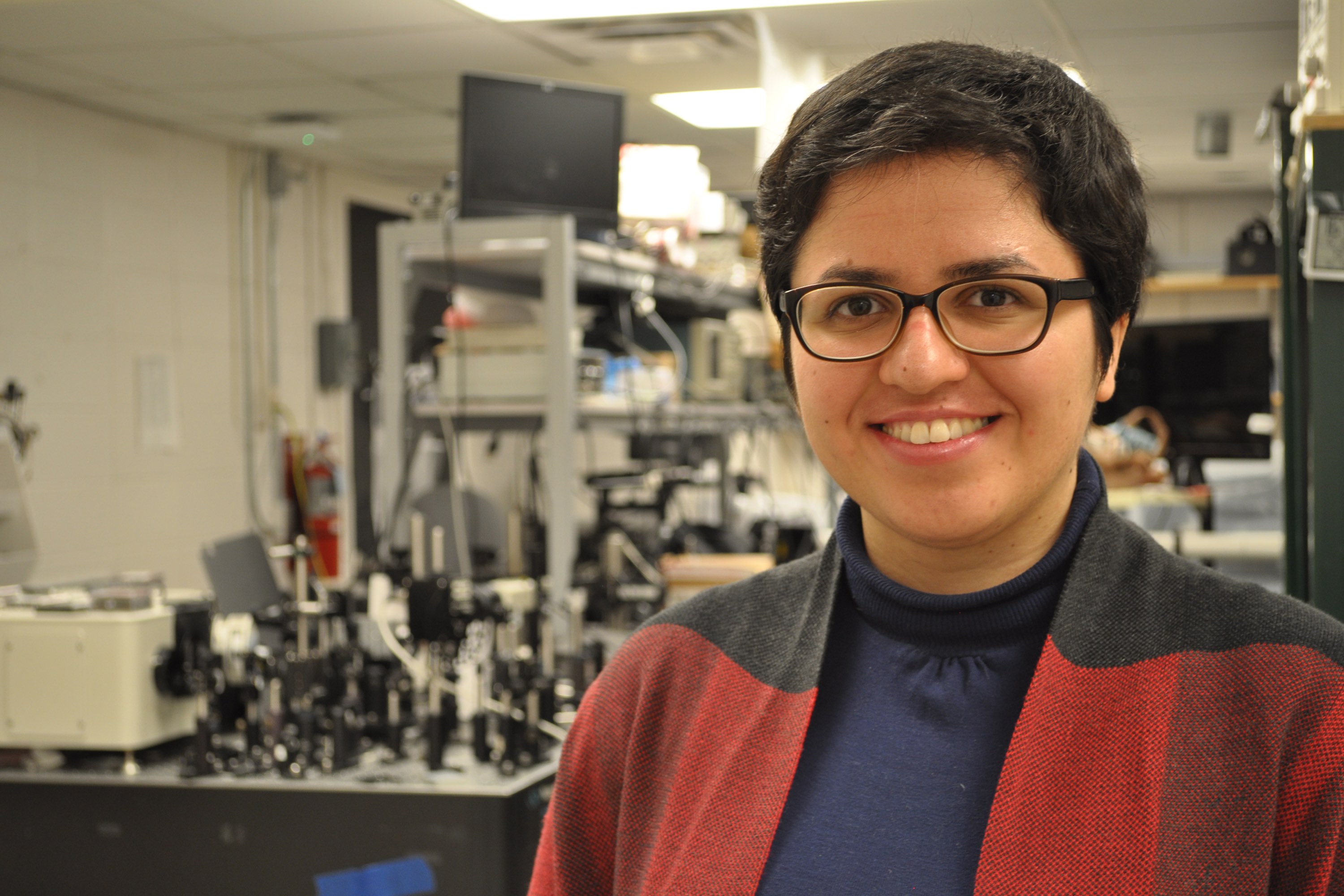Nooshin M. Estakhri receives the Helen Wu Award
Estakhri is a PhD student studying quantum optics and its potential to impact communication and biomedical imaging.

 Enlarge
Enlarge
Nooshin M. Estakhri received this year’s Helen Wu Award from the Rackham Graduate School. The award honors Helen Wu, a Barbour scholar who received her PhD in Biological Chemistry from U-M in 1953, and is given to help future generations of graduate students.
Estakhri studies experimental and theoretical quantum optics, which is a field of research that investigates phenomena involving the quantum state of the light and how it interacts with matter at various levels. Specifically, Estakhri works on generation of quantum entanglement and explores how quantum interactions and their effect (known as “quantum correlations”) would evolve if they were used in different platforms and for different purposes. She also explores the interactions of quantum light with artificial media, like metamaterials, which are man-made materials that alter electromagnetic waves in ways not found in nature.
Quantum solutions could help make large-scale communication systems more secure. For instance, signals transmitted through the air often encounter random media, like clouds, which impacts their quality, reliability, and speed. Similar effects show up in fiber infrastructure, which is used almost all over the world as a means of transmitting information. A full understanding of quantum light interaction with random media is therefore necessary to use these platforms for secure quantum communications. In addition, using quantum correlations could also help improve the precision of biomedical imaging.
“I find these topics really interesting, because they are fundamental questions that could lead to solving big problems in the near future,” Estakhri says.
I find these topics really interesting, because they are fundamental questions that could lead to solving big problems in the near future.
Nooshin M. Estakhri, ECE PhD student
In addition to her research, Estakhri is recognized by the College of Engineering as an excellent Graduate Student Instructor (GSI). She received an Honorable Mention for the Towner Prize for Outstanding GSI for the 2018-2019 academic year. The awards are based on anonymous student evaluations, and Estakhri was so popular that her office hours often ran well over time to accommodate all the students.
Estakhri is advised by Theodore Norris, the Gérard A. Mourou Professor of Electrical Engineering and Computer Science and the Director of the Center for Photonic and Multiscale Nanomaterials (C-PHOM). She earned her undergraduate and master’s degrees from the University of Tehran, summa cum laude, and received many scientific honors and awards. She was attracted to U-M for the strong curriculum and impressive facilities.
“I felt that the faculty cared about both teaching and research, which was important to me,” she says. “And there are many excellent options for research groups to join.”
Estakhri says one of the highlights of her U-M career was getting to meet Gérard Mourou, the A. D. Moore Distinguished University Professor Emeritus, who was one of three recipients of this year’s Nobel Prize in Physics. Mourou founded the Center for Ultrafast Optical Science where Estakhri works, and her lab was one of the first labs that Mourou built after moving to Michigan.
“When he came here and had lunch with the students, I told him I’m doing quantum optics, and I’m in Ted’s group. Without any hesitation, he said, ‘Are you in the corner lab?’” Estakhri says. “He remembered exactly where it was.”
Estakhri hopes to graduate next spring and plans to continue doing research.
 MENU
MENU 
